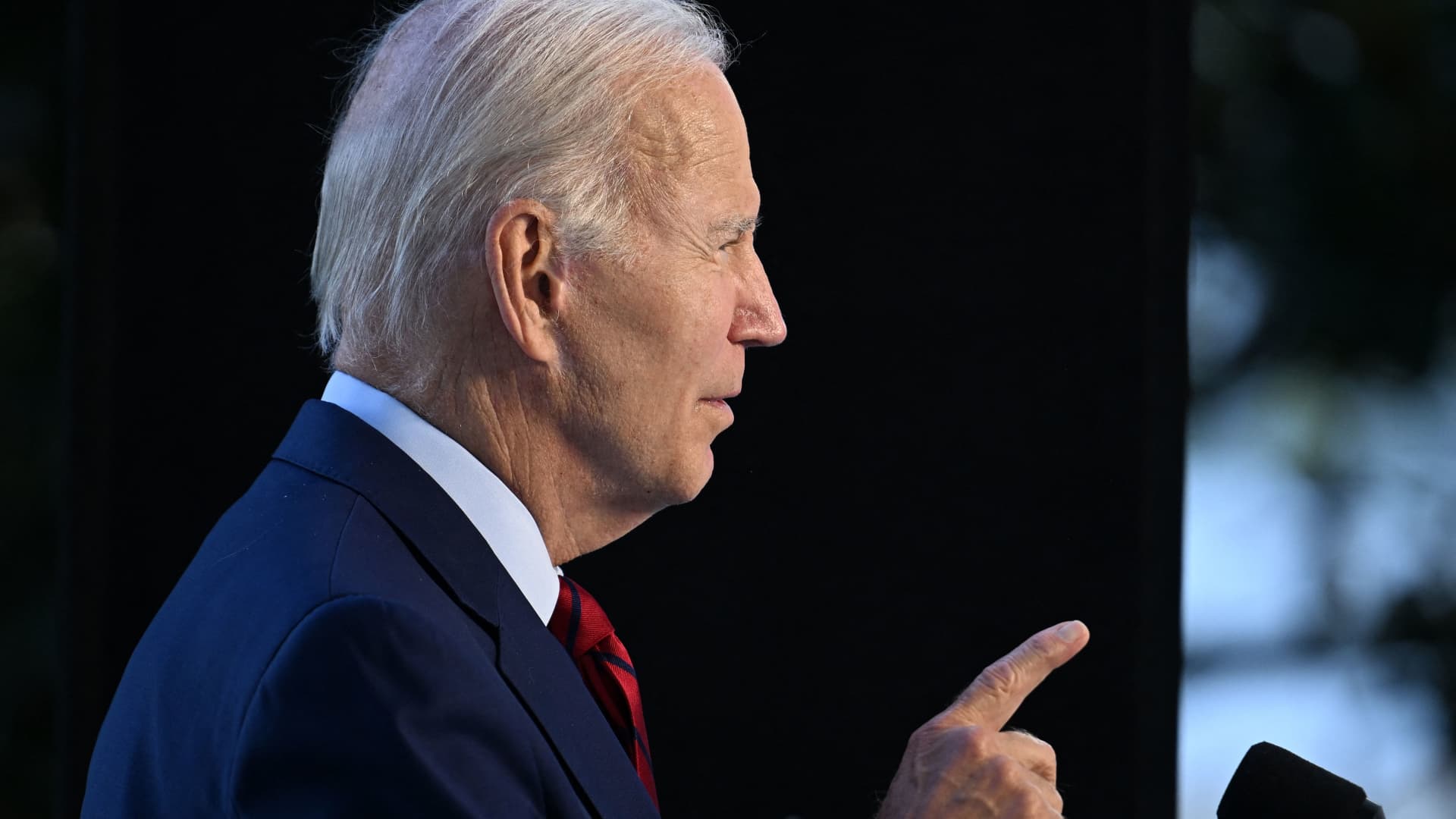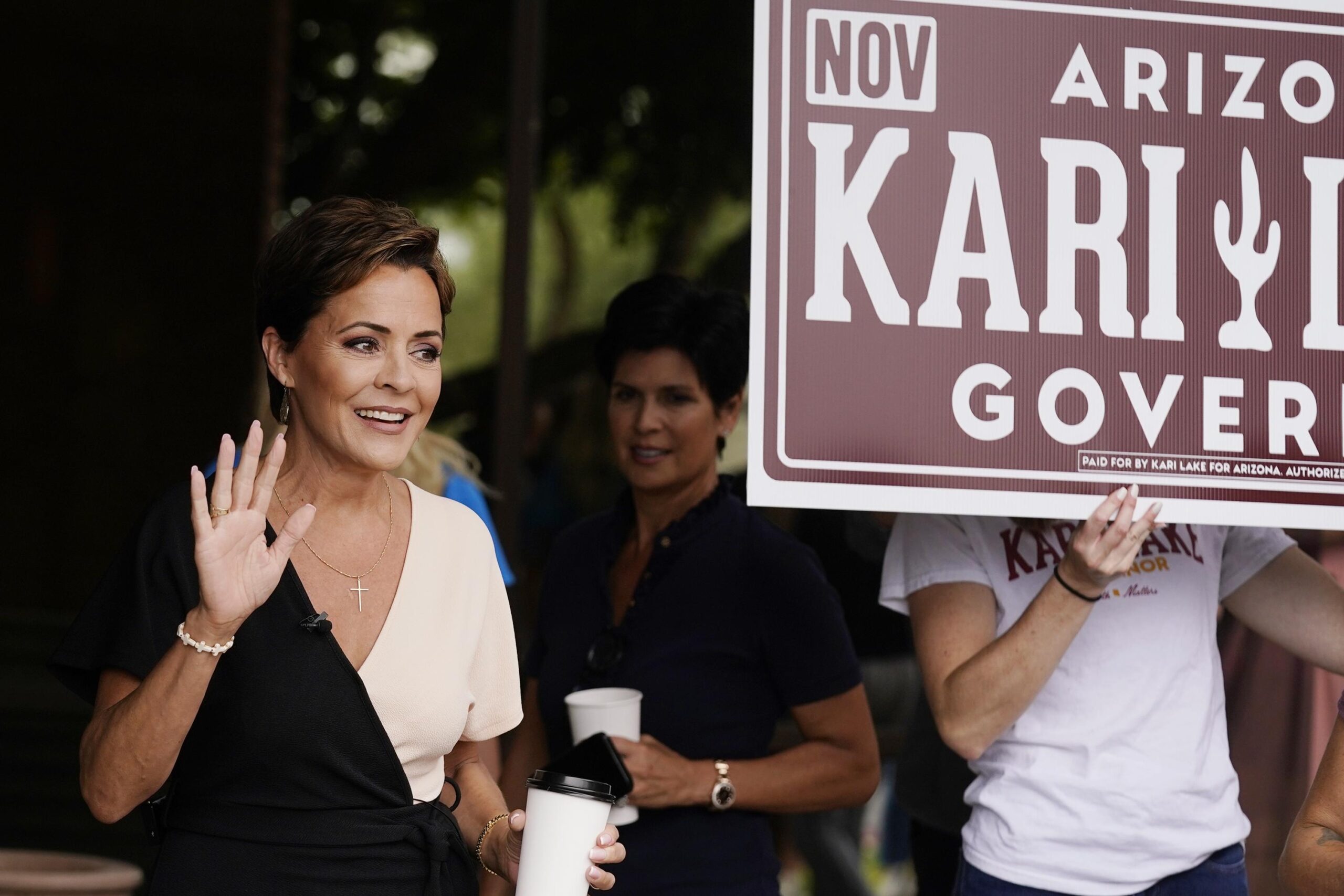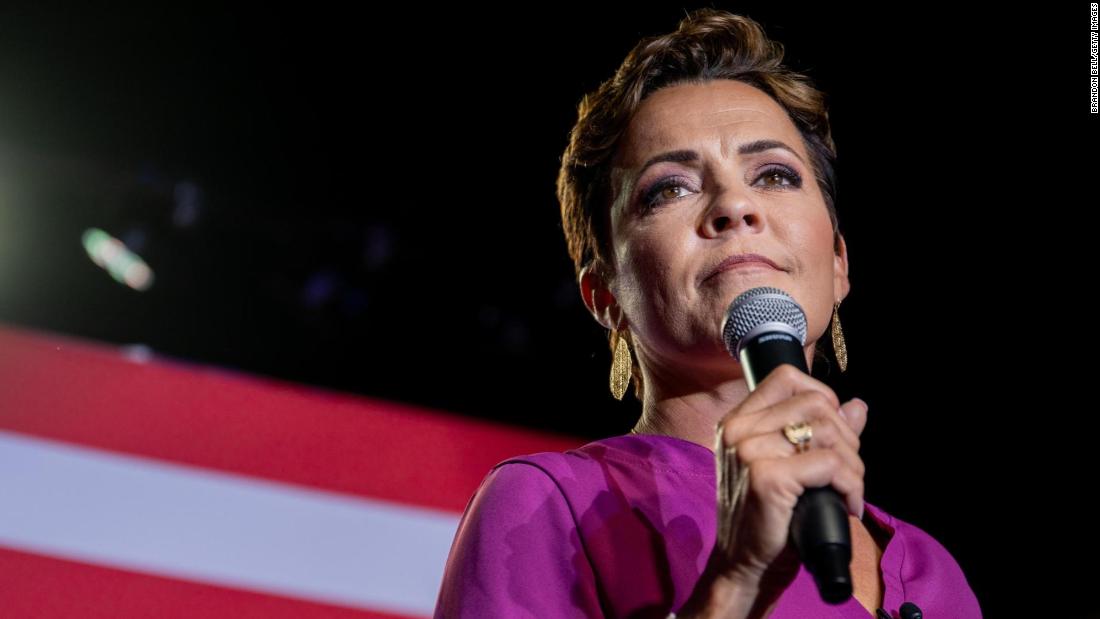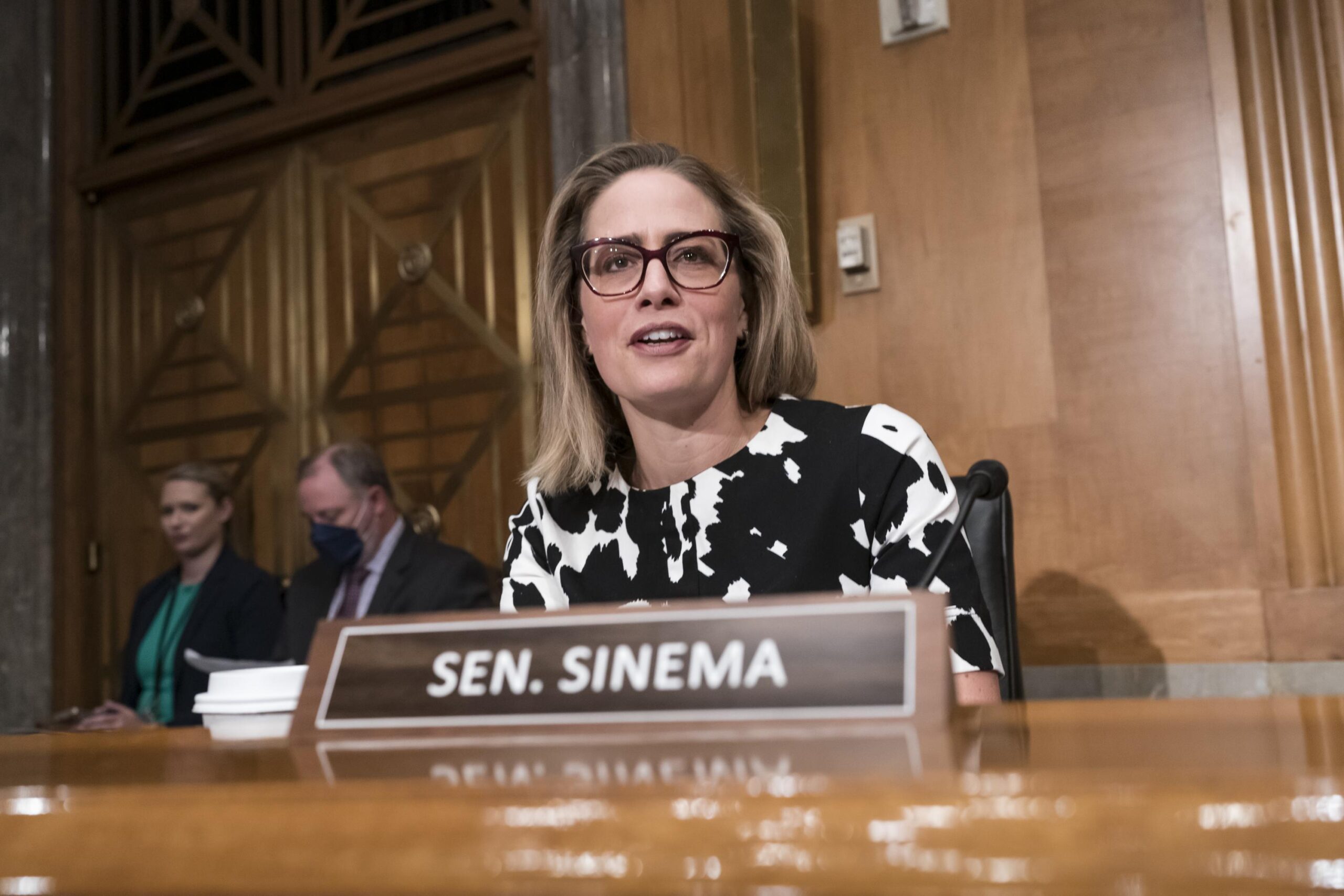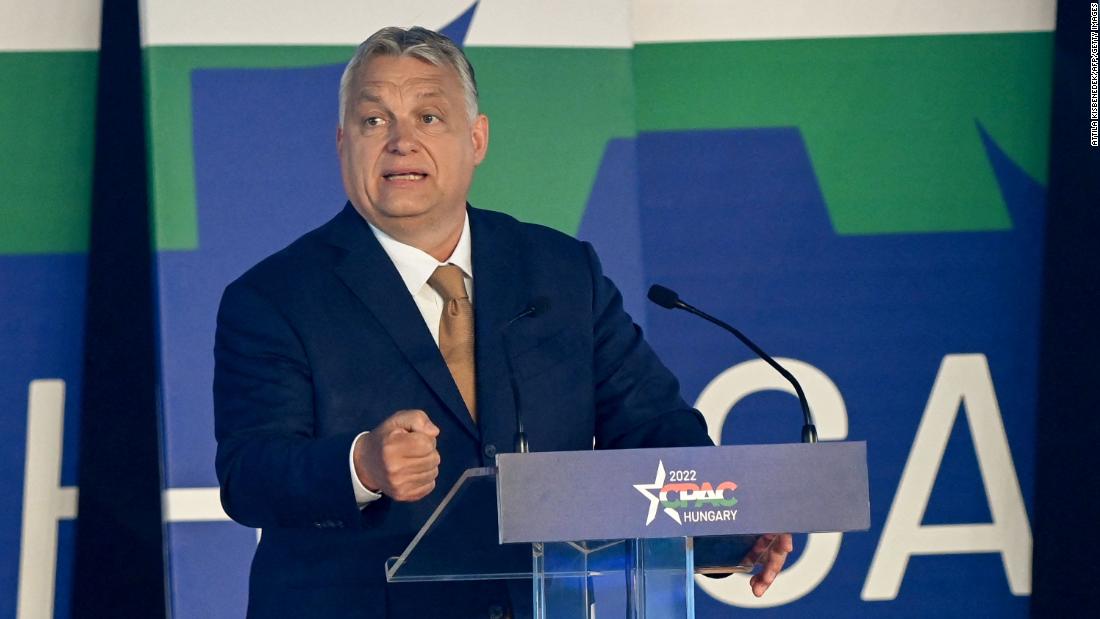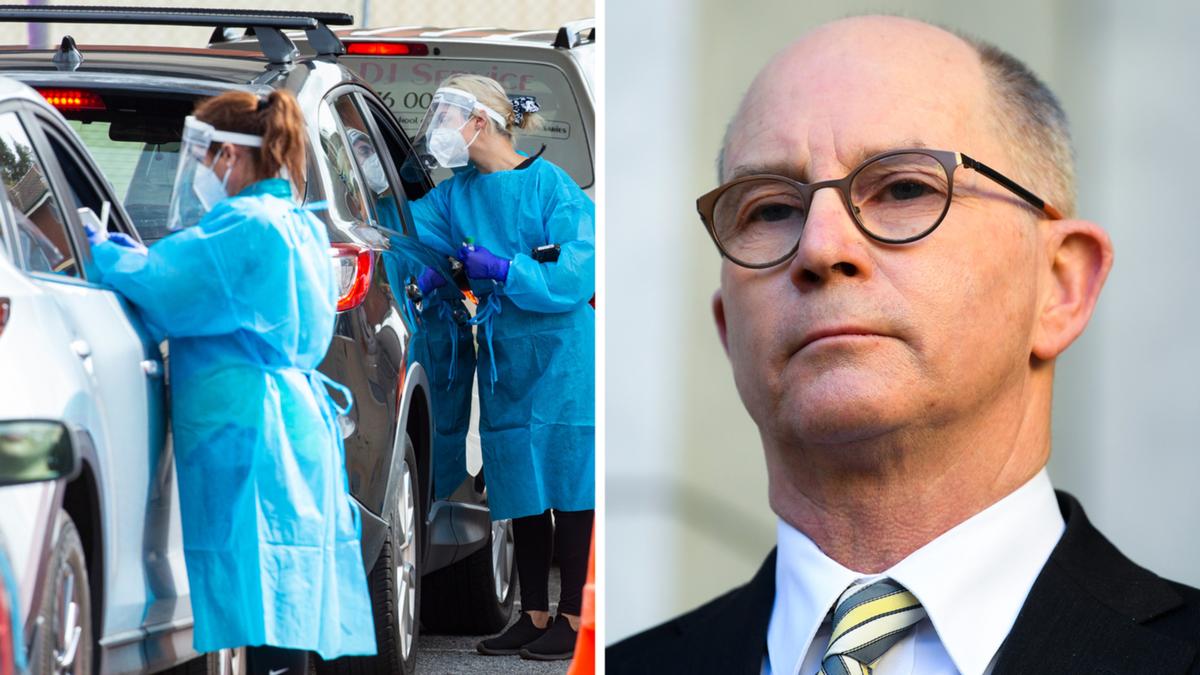Sinema’s support means Democrats likely will have 50 votes in their caucus to push the bill through their chamber by week’s end, before it moves to the House next week for final approval.
And while the plan is scaled back from Biden’s initial Build Back Better package, the latest bill — named the Inflation Reduction Act — would represent the largest investment in energy and climate programs in US history, extend expiring health care subsidies for three years and give Medicare the power for the first time to negotiate prescription drug prices. The legislation would impose new taxes to pay for it.
A remaining hurdle for Democrats: A review by Senate parliamentarian Elizabeth MacDonough, who must decide whether the provisions in the bill meet strict rules to allow Democrats to use the filibuster-proof budget process to pass the legislation along straight party lines.
But after days of talks with Senate Majority Leader Chuck Schumer, Sinema indicated she was ready to vote to proceed.
“Subject to the Parliamentarian’s review, I’ll move forward,” she said in a statement after maintaining silence over the bill for more than a week.
In the statement, Sinema indicated that she won several changes to the tax provisions in the package, including removing the tax on carried interest, which would have impacted hedge fund managers and private equity. That proposal would have raised $14 billion. She also suggested that she won changes to Democrats’ plans to stop back how companies can deduct depreciated assets from their taxes — a key demand by manufacturers that had lobbied Sinema over their concerns this week.
“We have agreed to remove the carried interest tax provision, protect advanced manufacturing, and boost our clean energy economy in the Senate’s budget reconciliation legislation,” Sinema said.
To make up for the lost revenue, Democrats agreed to add a 1% excise tax on companies’ stock buybacks as part of the agreement, raising another $73 billion, according to a Democratic aid.
“The agreement will include a new excise tax on stock buybacks that brings in far more revenue than the carried interest provision did, meaning the deficit reduction figure will remain at $300 billion,” a Democrat familiar with the agreement told CNN.
The $300 billion target in deficit reduction had been a key priority of Sen. Joe Manchin, a West Virginia Democrat who signed onto the deal after negotiations with Schumer last week.
“The agreement preserves the major components of the Inflation Reduction Act, including reducing prescription drug costs, fighting climate change, closing tax loopholes exploited by big corporations and the wealthy, and reducing the deficit by $300 billion,” Schumer said in a statement. “The final version of the Reconciliation bill, to be introduced on Saturday, will reflect this work and put us one step closer to enacting this historic legislation into law.”
High-stakes negotiations
Earlier Thursday, top Senate Democrats engaged in high-stakes negotiations with Sinema, actively discussing potential changes to major tax components in order to secure the Arizona moderate’s support.
In private discussions, Sinema had expressed concern over key parts of the Democrats’ plan to pay for their climate and health care package — imposing a 15% tax minimum tax on big corporations and taxing so-called carried interest, which would mean imposing a new levy on hedge fund managers and private equity.
As a result, Democrats had been scrambling to find new revenue sources to meet the goal of saving $300 billion over a decade.
“Failure is not an option,” said Sen. Richard Blumenthal, a Connecticut Democrat, expressing the view of much of his caucus earlier Thursday that Sinema would eventually get on board.
Democrats are trying to wrap up negotiations and pass their economic passage before leaving town for a month-long August recess. The measure would invest $369 billion into energy and climate change programs with the goal of reducing carbon emissions by 40% by 2030. For the first time, Medicare would be empowered to negotiate the prices of certain medications, and it would cap out-of- pocket costs at $2,000 for those enrolled in Medicare drug plans. It would also extend expiring enhanced subsidies for Affordable Care Act coverage for three years.
It’s not clear if all these provisions will survive the parliamentarian’s review.
Heavy pressure on Sinema
Sinema was not part of the deal, learning of it when the news broke last week. She had refused to comment publicly on the deal, with her aides de ella only saying she would wait until the Senate parliamentarian’s review is done before ella taking a position. Yet she had been making her demands clear with Democratic leaders, including seeking to add $5 billion to help the Southwest cope with its multi-year drought, according to multiple sources.
“Is this written in a way that’s bad?” Sinema asked, according to Seiden, president of the Arizona Chamber of Commerce, who relayed the call to CNN.
“It gave me hope that she’s willing to open this up and maybe make it better,” Seiden said.
Two sources told CNN that Sinema had privately relayed those concerns to top Democrats, arguing it would hurt manufacturers including in her state.
In an effort to break the log jam, Colorado Sen. John Hickenlooper, a freshman Democrat, proposed the excise tax on stock buybacks to Schumer as a way to make up for the revenue lost by Sinema’s requests, according to a Democratic aid.
At issue are changes proposed by Democrats on bonus depreciation that the GOP enacted in the 2017 tax law, which allows companies to deduct 100% of the cost of an asset the year it is placed in service. The new legislation proposed to phase that down starting next year.
It’s unclear exactly how the new language is structured on this issue.
Defending the new tax, the Democratic-led Senate Finance Committee released date on Thursday from the non-partisan Joint Committee on Taxation showing that up to 125 billion-dollar companies averaged only a 1.1 percent effective tax rate in 2019. The committee argues in its release that this shows the “rock-bottom tax rates” that some companies are able to pay.
“While we know that billion-dollar companies are avoiding paying their fair share, these tax rates are lower than we could have imagined,” said Senate Finance Chairman Ron Wyden, an Oregon Democrat. “We’re going to put a stop to it with our 15 percent minimum tax.”
This story and headline have been updated with additional developments Thursday.
CNN’s Jessica Dean, Ella Nilsen, Clare Foran and Alex Rogers contributed to this report.
.

